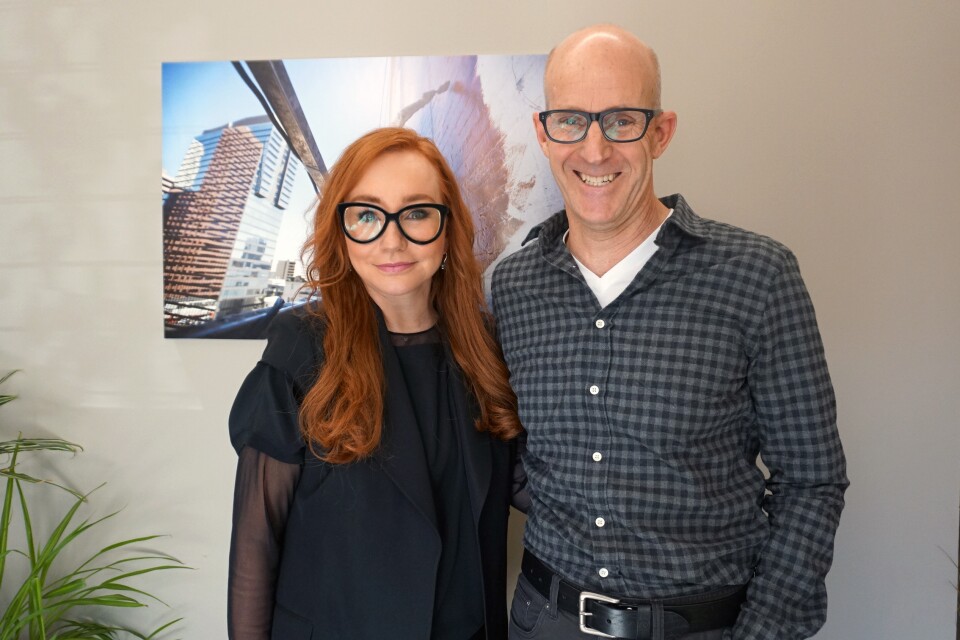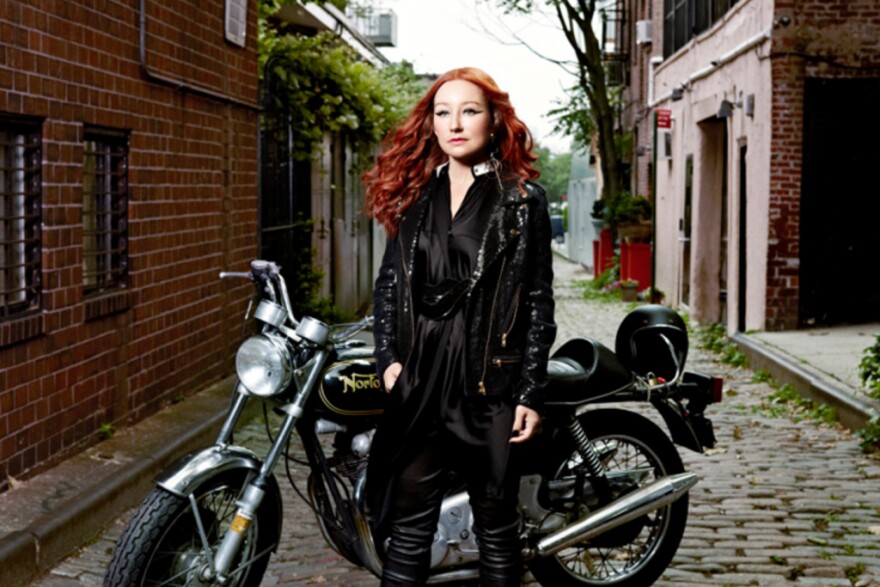Singer-songwriter Tori Amos discusses her song "Flicker" which she wrote for the documentary "Audrie & Daisy," a film about sexual assault and cyberbullying, issues that are close to Amos' heart; Franklin Leonard, founder and CEO of The Black List, discusses the topics and trends of his 2016 list of the most liked screenplays in Hollywood, and screenwriter Cat Vasko, who has made it on the Black List for three years running, shares what getting on the list has meant for her career.
Tori Amos: Musical artists can provide comfort during troubled times
Singer/songwriter Tori Amos has been making music for decades. A musical prodigy from an early age, Amos grew up to be a classically-trained pianist with a distinctive voice to match. Her 14 studio albums have sold millions.
But in addition to her work as a musician, Amos has devoted her time to RAINN — the Rape, Abuse & Incest National Network, a toll-free hotline for survivors of sexual assault. Amos, herself a rape survivor, was the first national spokesperson for the group.
So when filmmakers Bonni Cohen and Jon Shenk approached Amos to write a song for their documentary, "Audrie & Daisy," she agreed.
"Audrie & Daisy" tells the stories of two teen girls in different cities who are both sexually assaulted and bullied online in the aftermath. Sadly, Audrie committed suicide, but Daisy lives on to speak out for other victims and survivors.
Amos joined The Frame to talk about writing the song, "Flicker," her work with assault survivors, and the role of artists to affect social change.
Interview Highlights:
What Amos saw in "Audrie & Daisy" that called her to action:
For people that haven't seen the film, it's a tough watch because it's about our teenagers sexually assaulting our teenagers. Both the stories of "Audrie & Daisy" are true. We've lost Audrie and the song needed to, on one hand, acknowledge that and speak about it and grieve. And then on the other hand, we needed to talk about empowerment. There was a mantra [seen] in the film and the mantra was: "Monsters are made, not born." And it became: "Heroines. They are not born, they are made."
On the culture of teenage sexual harassment:
I had no idea that [teens] are surrounded by this type of harassment everyday. I didn't understand that. Until I watched the film, I was aware that it was at our universities, but I didn't realize that it was now not only in our high schools, but at middle school age level. Bonni and Jon made it very clear, as they show in the film, that the girls are being groomed [for abuse] at 11 and 12 years old. Sometimes it's out of fear that if they don't [play along], they won't be accepted. They don't necessarily think about — before they [share a photo] — the ramifications that then it gets put up and shared — traded like baseball cards might have been 30 or 40 years ago. You don't think that this is happening with 11- and 12-year old kids, but it is.
On the impact of her song about surviving rape, "Me and a Gun":
Over the last 20 years now, people confide in you their attack and you become part of their life. And it's a sacred trust that happens. They're sharing something with me because they have a relationship with the song, "Me and a Gun."
There was a pivotal moment in 1994 when a young girl, during this song — we were in the Midwest — she fainted. It was near the end of the show. They carried her back and I saw her and she said to me, "Can I join the tour? If I go home tonight I'll be raped by my stepfather. I was raped last night. It doesn't stop and my mother won't admit this is happening. She's saying I'm crazy." You think about calling the police and all these things and I said, "Come on tour and we can find [you a job]." Legal got wind of this, because you've got tour managers, and they said: "Tori, if you're going to take this girl, you're crossing state line tonight. You will be arrested for kidnapping." I watched her walk out that door and I will never forget that look in her eye. And I realized, she didn't have an advocate. RAINN wasn't in place at the time. Yes, there were rape crisis centers, but there wasn't a protocol in order to pull them together with one number. That was the beginning of launching of the Rape Abuse and Incest National Network.

On using art to talk about things that matter:
It seems as if there are times we've turned to our songwriters, whether it's Leonard Cohen, Lennon and McCartney, Joni Mitchell, Joan Baez. During that time I was a little girl and I remember these songs and how important it was for people to grapple with what was happening. We were with the Vietnam War and what was happening, and these artists and many more like that became my close friends, my sonic close friends, no different than [how] children think of fairy godmothers or angels. They were really my poet angels and the sages that showed me the way. There are many more, of course. So I do think, in times of troubles, that it is important if you're being called then you say, I've got to become part of this conversation. There is a responsibility as an artist to talk about the pain people are going through — to talk about possibly different viewpoints and to sharpen your pencil.




